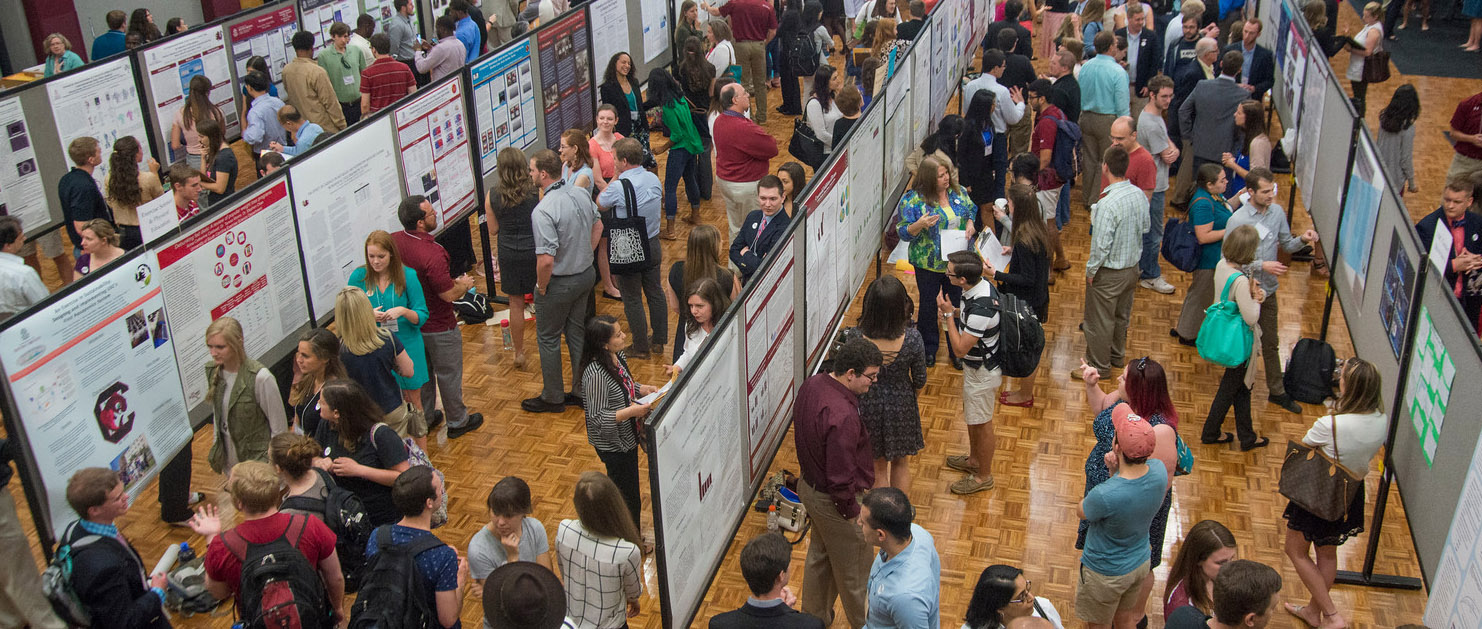GLD Presentation Expectations
The purpose of the GLD presentation requirement is for each student to demonstrate deep thinking, draw substantive conclusions, and apply learning from a beyond-the-classroom experience. To count for GLD, a presentation must meet all of the following requirements:
- Solo presentation (written, oral, creative, or combination of these)
- Focused on one beyond-the-classroom experience
- Student demonstrates deep thinking, draws substantive conclusions, and applies learning from a beyond-the-classroom experience
- Student receives feedback on the development and/or delivery of the presentation from a supervisor or mentor
- Student articulates the presentation to a group including a faculty or staff member, supervisor, or advisor
Timing
Students most often complete the presentation requirement during their junior or senior year, after participating in a significant beyond-the-classroom experience.
Students must indicate the venue and timing of their presentation no later than their GLD application deadline (based on ePortfolio semester). At the time of submitting the GLD application, the presentation requirement may be already completed or still upcoming (e.g. the presentation will occur during a student’s final semester, but after the GLD application deadline). No changes will be allowed after a student has submitted their application.
Accepted Presentation Types
Students most often complete the presentation requirement during their junior or senior year through one of the approved options:
- Fall Showcase (November), Discover USC (April), Summer Research Symposium (July)
- Must register and submit an abstract by the event’s registration deadline to participate (see more below)
- Must be accepted, in-press, or published in a peer-reviewed, edited journal
- Must submit a copy of the accepted publication along with GLD application
- Truman, Rhodes, Marshall, Goldwater, Udall, Mitchell, Boren or Fulbright
- Must apply with support from NFSP, but winning is not required to count for GLD
- Must submit a copy of the application materials along with GLD application
- Must meet all of the requirements listed in the purpose statement
- Must submit a copy of the presentation and signed alternative presentation form along with GLD application
- Cannot double dip with other GLD requirements (i.e. core experience, coursework)
- Must meet all of the requirements listed in the purpose statement
- May be course-based or non-course-based
- Must submit a signed alternative presentation form along with GLD application
- Cannot double dip with other GLD requirements (i.e. core experience, coursework)
- Must meet all of the requirements listed in the purpose statement
- Must include a signed alternative presentation form along with GLD application (see more below)
- Cannot double dip with other GLD requirements (i.e. core experience, coursework)
More on Poster Presentations (Discover USC, Fall Showcase)
Poster presentations require a title and abstract to be submitted along with registration for the event. The abstract outlines the beyond-the-classroom experience a student completed, specifics of their role and responsibilities, and substantive conclusions about their learning through the experience. Abstracts are typically no more than 350 words. Example titles and abstracts are provided here.
Registration Deadlines:
- Fall Showcase – Two (2) weeks prior to the event (early November)
- Discover USC - Wednesday before Spring Break (early March)
Posters should be at minimum 24 inches by 36 inches in either portrait or landscape orientation. Refer to venue-specific guidelines for additional guidance on poster sizing. Posters must include:
- Presentation title (must match the abstract submitted)
- Student name
- GLD pathway
- Description of beyond-the-classroom experience
- Describe role, title, responsibilities and important moments. Include the amount of time spent in this experience. Add any significant information about the group or location (its mission or primary purpose). Describe why you chose to get involved.
- Analysis of learning from beyond-the-classroom experience
- Describe lessons learned from the experience (be specific). How did this experience help you grow or think differently? How will you apply these lessons learned? What new questions did this experience raise for you that you might investigate in the future? What do you want to do next or learn more about?
- Photo(s) representing the beyond-the-classroom experience
Pre-sized poster templates are available here. Students may also create their own designs using Microsoft PowerPoint, Google Slides, or Canva.
Students will interact with others and speak about their experience during the poster presentation event. This means students should be present for the duration of the poster presentation event and engage with reviewers when they stop by.
During the poster presentation, students will share prepared remarks (an overview of the poster) and answer questions about their experience and learning. Students should expect questions such as:
- Tell me more about what you learned during this experience. How did you come to learn or apply this information?
- What was one significant thing you learned about yourself during this experience?
- What are your plans after graduation and how might you use what you learned in your future?
Poster presentations at Discover USC and Fall Showcase are reviewed by faculty and staff for the following criteria:
- Abstract content and connection to presentation
- Poster presentation visuals and format
- Depth of knowledge of subject and experience
- Communication and interaction with the audience
Poster presentation feedback is available upon request following the event.
More on Approved Alternative Presentations
All alternative presentations must meet the presentation expectations outlined at the top of this page.
Some commonly approved alternative presentations include:
- Elementary Education Showcase
- SCHC Honors Thesis Defense
- SCHC Honors Thesis Symposium
- Course-based beyond-the-classroom presentation (must fit the GLD presentation expectations)
- Course or non-course-based dance, music, theater, or art presentation (must fit the GLD presentation expectations)
- Off-campus beyond-the-classroom presentation (must fit the GLD presentation expectations)
Students pursuing an alternative presentation must submit an alternative presentation form signed by both the student and their instructor, supervisor, mentor, or advisor for the beyond-the-classroom experience. The alternative presentation form requires students to document their learning through evidence of the presentation (a copy of the materials) and a description of their contributions and lessons learned.
